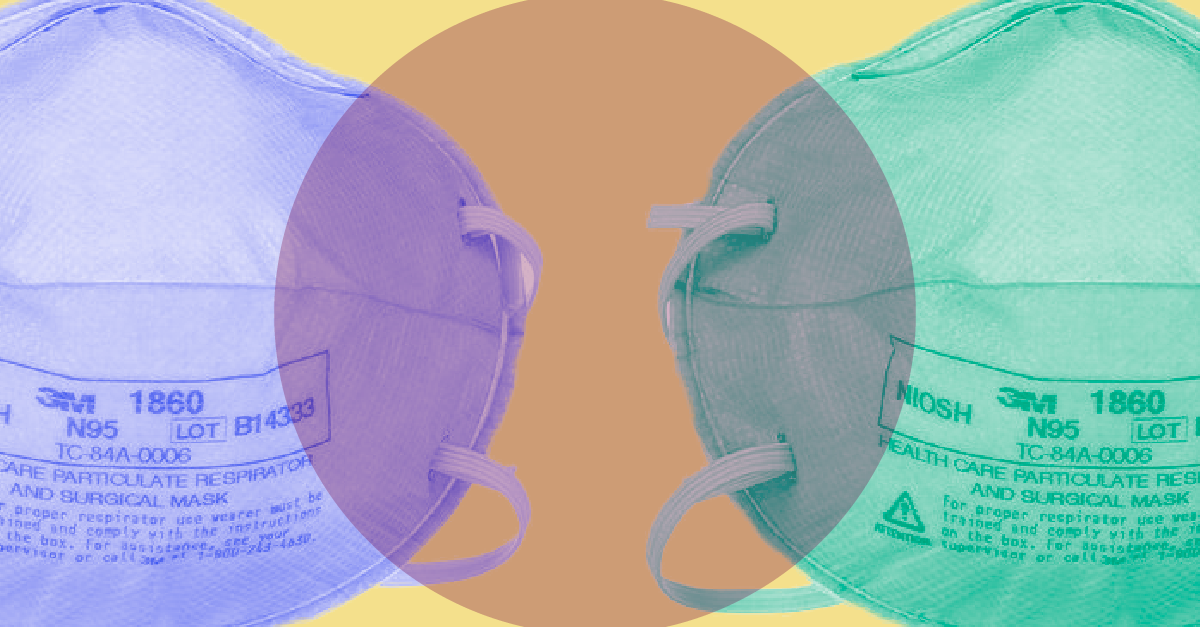As the global COVID-19 pandemic intensifies, the way we are all working is rapidly shifting. Where interaction with colleagues, partners, and community members was once encouraged, it is now necessary to practice physical distancing and connect in virtual ways. As educators, this has meant the huge task of moving learning and support services completely online. In this response to COVID-19, the incredible versatility of Canada’s colleges and institutes has been evident, and we urge you to keep up the good work and keep sharing your stories!
While we’ve seen resilient and creative methods to deliver online instruction across the country, in Canada and around the world, healthcare systems are struggling to meet the needs of their patients and communities. It’s at times like these that Canada needs its network of colleges and institutes the most.
In vital human and personnel resources, Fanshawe College, Collège la Cité, and St Clair College were all able to put third-year Respiratory Therapy students on a fast-track to graduation so they could begin working at hospitals where there were shortages of therapists. Similarly, 14 Red River College Health Information Management students stepped up to the challenge to help with vital record keeping and tracking the spread of COVID-19.
In material resources, the Honourable Navdeep Bains, Minister of Industry, Science and Innovation thanked post-secondary institutions for their leadership and research effort to help understand, combat, and mitigate the impacts of COVID-19 and issued a call for support in providing medical equipment and access to 3D printers capable of producing critical supplies in times of shortage. And just last week, the minister followed up with another letter specifying additional supplies that were deeply needed.
Colleges and institutes have answered the call, donating equipment used in practical nursing and medical training, such as surgical face masks, gloves, gowns, and hospital beds; and many have put their research and innovation teams to work developing and producing new equipment! For example:
- Niagara College is producing 2,000 face shields at the Walker Advanced Manufacturing Innovation Centre using laser-cutting technology and computer design tools. The college’s teaching distillery has also moved to produce 70% alcohol disinfectant that can be used for hand sanitizer and surface wipes.
- At Vestechpro, a research and innovation centre specializing in the development of intelligent clothing and textiles affiliated with the Cégep Marie-Victorin, the team is mobilizing its partners to develop new models for medical protective equipment and clothing that meets the needs of hospital workers and can effectively combat infection.
- A Mechanical Engineering Technology professor at Durham College and his students are using the college’s six 3D printers to continuously produce face shields for local community organizations and hospitals in need of personal protective equipment.
- A faculty member at Kwantlen Polytechnic’s Wilson School of Design is also designing and producing a face shield to support Canada’s efforts to fight COVID-19.
- Working with their partners at AP Plastics and Island Health, Camosun College’s Camosun Innovates team designed a new face shield that could be 3D printed at a rate of 90 units per hour over their previous estimate of ten per day to meet growing demand.
- Sheridan College’s Centre for Advanced Manufacturing and Design Technologies is exploring how it can use its leading-edge manufacturing expertise and equipment, including 3D printers, a robotics lab and other advanced technologies to meet the need for medical equipment and supplies.
- In addition to providing 3D printers to produce ventilator components, Humber College’s Faculty of Heath Sciences and Wellness is also exploring how its biotechnology labs could be converted to support COVID-19 testing.
- Georgian College’s Research and Innovation team is using its skills to manufacture 600 temporary face shields for its long-term partner, the Royal Victoria Regional Health Centre.
For those with resources to offer, Canada wants to hear from you. Similarly, share your research expertise with the Montreal General Hospital Foundation to help design a low-cost, easy-to-use and easy-to-build ventilator that can serve COVID-19 patients; by applying for a NSERC Alliance COVID-19 grant to accelerate the exchange of research results and expertise; or by getting your students and interns involved in research development for Mitacs COVID-19 related projects.
This is a challenging time that calls upon each one of us to do our part to support our communities and contribute to global efforts to flatten the curve.

